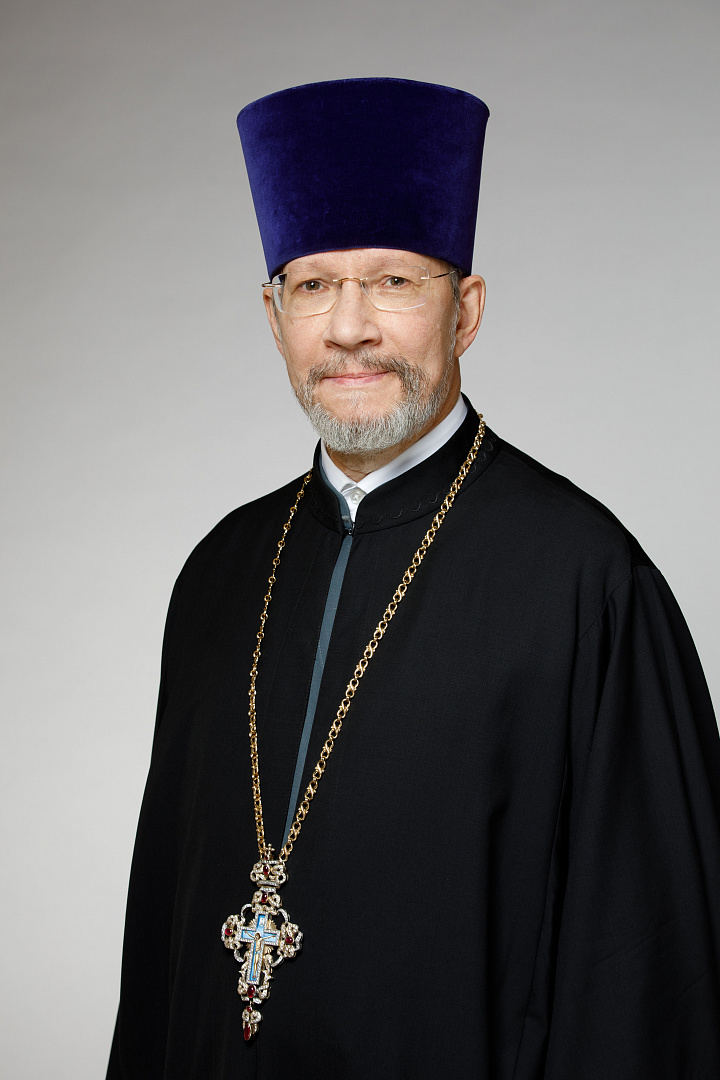
MOSCOW, 6-Sep-2021 — /EPR EDUCATION NEWS/ — Vice-chairman of the Department for External Church Relations of the Moscow Patriarchate shares his thoughts about the speeches made in Kiev by Patriarch Bartholomew.
The autocephaly (independence of a church) of the so-called Orthodox Church of Ukraine composed of representatives of the schismatic groups was allegedly granted quite lawfully. The supposed ‘privileges’ of the See of Constantinople, which ostensibly invest it with rights to make unilateral decisions with regard to other Orthodox Local Churches, are also alleged to be totally lawful and canonical. Constantinople ostensibly did not change anything in the traditional Orthodox ecclesiology (the teaching on the Church); on the contrary, it is changed by those who disagree today with submitting in everything to the faultless ‘spiritual leader of 250 millions of Orthodox Christians throughout the world’, as the ‘Green Patriarch’ likes to call himself. Now it is already clear to everybody that most of Orthodox Christians do not consider Patriarch Bartholomew to be their spiritual chieftain after the schismatic action he committed.
The Kiev rhetoric of Patriarch Bartholomew shows that His Holiness is perturbed by the criticism against the uncanonical invasion of the Patriarchate of Constantinople into the Ukrainian affairs – the criticism coming from hierarchs, theologians and historians of many Orthodox churches.
However, the Patriarch has failed to give convincing answers prompting other Local Churches of the Orthodox family to recognize the latter-day autocephaly of ‘the Most Holy Church of Ukraine’. He simply repeats that he is always right because the See of Constantinople is always right, that ‘the Great Church of Christ’, with which he identifies himself does not need to discuss anything with anybody because he never makes mistakes and sacrifices himself for the sake of our common good and proposes that all the Orthodox Christians take it for what it is worth. Otherwise, he says, they will no longer be Orthodox at all.
However, the point is that we, the Orthodox, have not and have never had such a doctrine of faith. The Patriarch of Constantinople is not at all the Pope of Rome. And it was not we, the Orthodox, who held the First Vatican Council. And the papal infallibilitas (inability to err) even in the conception of our Catholic brothers, with whom Fanar is getting close so fast today, has serious limits.
The patriarch complains of some ‘neologisms, new wordings and dangerous ecclesiological views’, as well as ‘attempt at an overturn in church statutes’ seeking to ‘belittle the significance of the Archbishop of Constantinople’ to almost that of ‘a museum exhibit’. He even admits that ‘many believe that the Ecumenical Patriarch sheers away from reality’. In response, apparently feeling the inadequacy of his today’s argumentation, he promises ‘in the nearest future’ to show ‘both the appropriate texts and the whole course of this (Ukrainian) issue’.
To study together the texts and the historical course of the issue by inviting for it the best scholars from various countries is something Patriarch Kirill of Moscow and All Russia proposed long ago, including in the course of this latest visit to Fanar in August 2018. At that time, Patriarch Bartholomew answered that he had no time for it, but everything was clear to him even without it. If the interest in texts has now renewed, the excellent edition “The Unification of the Metropolis of Kiev with the Russian Orthodox Church. 1676-1686. Studies and Documents†published in 2019 by ‘The Orthodox Encyclopaedia’ edited by Metropolitan Hilarion of Volokolamsk is highly recommended.
It has 912 pages and 246 documents from archives. In a concise form, the principal historical material is presented in the book by Metropolitan Nikephoros of Kykkos entitled Contemporary Ukrainian Issue and Its Resolution According to Divine and Holy Canons.
Certainly, the makers of the destinies of the world from the Bosporus shores hardly will be interested in the truth of history and the truth of canons.
‘Gentlemen, do you think that you are the state? I am the state!’ Luis XIV once declared to the deputies of the French Parliament.
‘«L’église c’est moi!’ – as if it is now heard in the speeches in Kiev. The only difficulty is that for some reason not everyone believes it…
SOURCE: EuropaWire
